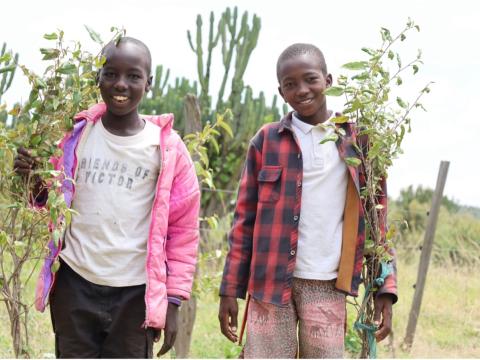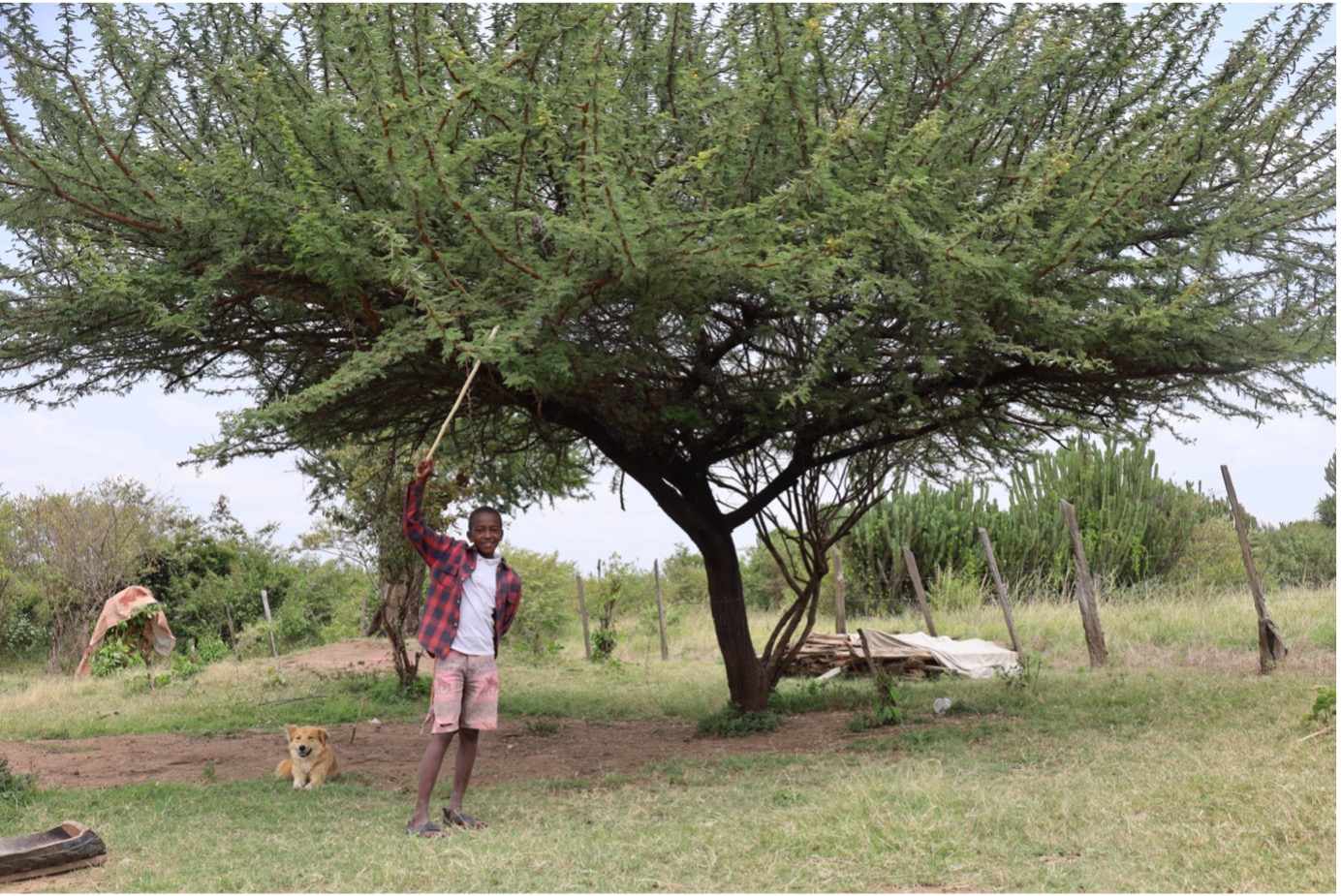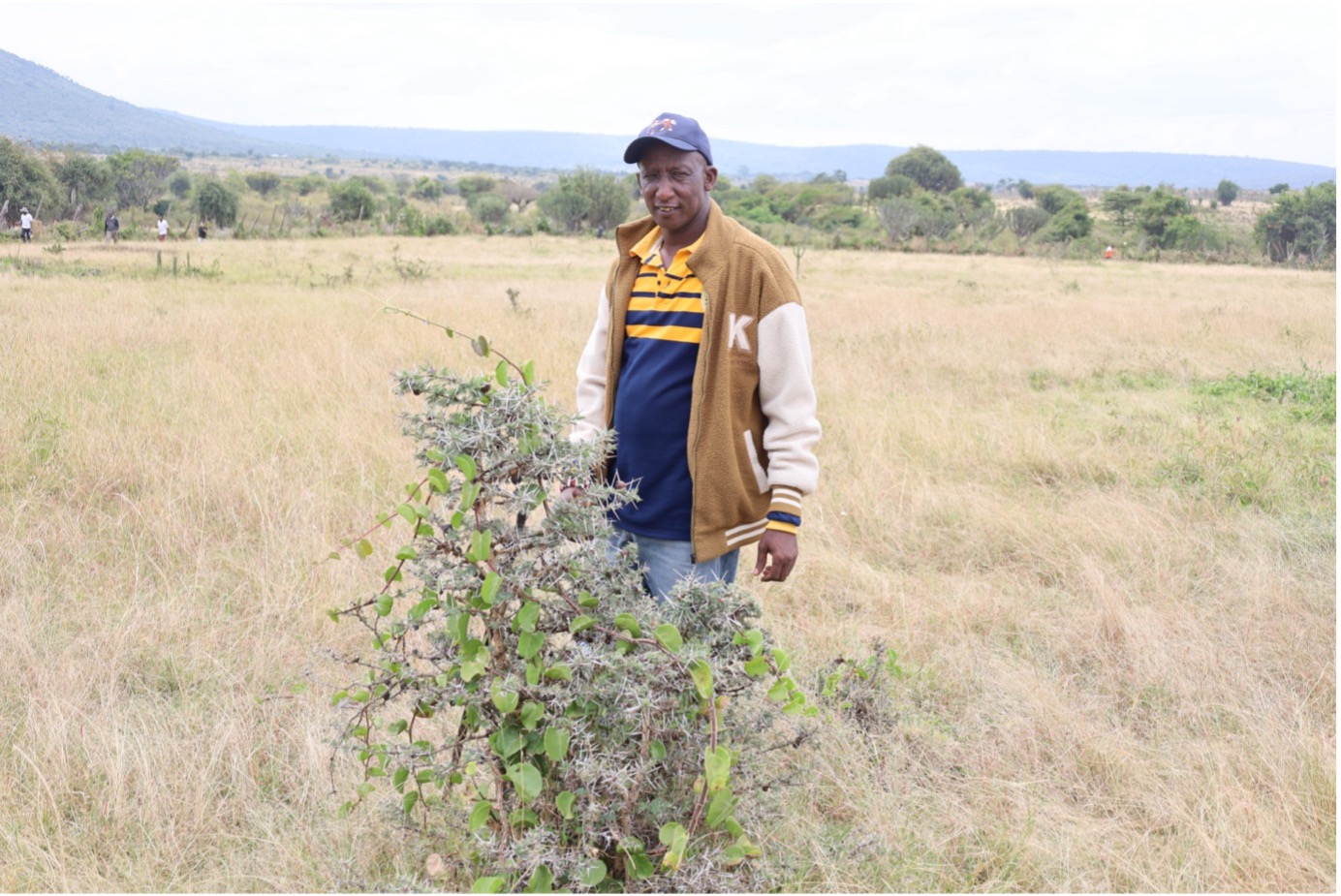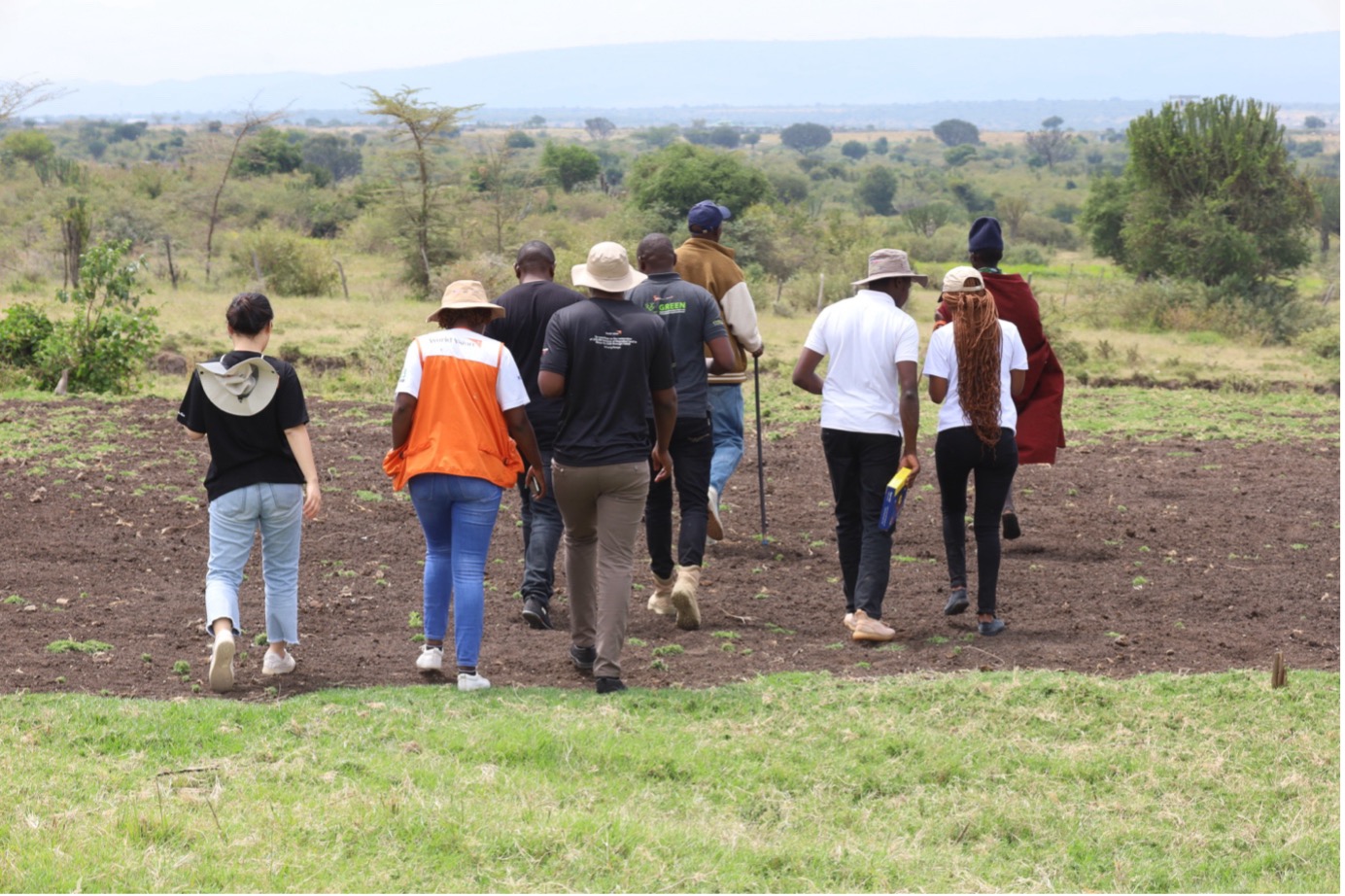Young Voices of Nature: Voices of Hope, Resilience, and Sustainable Futures

Climate change is an undeniable force, deeply affecting communities in Kenya's arid and semi-arid lands (ASALs) and beyond. Women and children, particularly, bear the brunt of its harsh consequences. Yet, amid the climate crisis, children are emerging as active agents of change rather than passive victims.
In Eluai village, Narok West, we met two young environmental champions - 12-year-old siblings Lemayian and Gideon - leading efforts to combat climate change. As students at Oloolamutia Primary School, they have become symbols of hope, showing that even the most petite hands can make a big impact. Their courage, determination, and resilience serve as a call to collective action in the face of a global crisis.
"Soil erosion is a big problem here. It damages crops and endangers livestock," they explained. "We fill in eroded areas using pruned tree branches and animal waste like cow dung to protect our land and animals."
Education has played a critical role in empowering Lemayian and Gideon to take climate action. At school, they learned the importance of caring for the environment and now share that knowledge with their peers.
As they play together at home and on the school playground, they teach their peers how to prevent soil erosion through simple yet effective methods like using pruned tree branches and organic waste. "It’s exciting to see our friends also taking care of their land," Gideon shares proudly.
At home, with guidance from their parents, the siblings have implemented Farmer-Managed Natural Regeneration (FMNR)—a low-cost, innovative method of restoring landscapes. FMNR helps communities tackle the adverse effects of climate change by encouraging the natural regrowth of trees from existing stumps or seeds, contributing to both environmental restoration and sustainable livelihoods.
“FMNR involves thinning the shoots from tree stumps so they grow into mature trees,” explains Steve Kapario, a GREEN Project Officer based in Narok. “It’s a simple, low-cost method that helps communities restore their land.”

Gideon knows the benefits of trees very well. He says, “We take care of these trees because we’ve learned their many benefits—they provide shade, medicine, fruits, and even fence our compound to protect our livestock.”
Through the Greater Regeneration for Evergreen Environment (GREEN) project, funded by the Australian NGO Cooperation Program (ANCP) via World Vision Australia, World Vision Kenya has facilitated intergenerational dialogues. These dialogues bring parents and children together to discuss regreening efforts using simple FMNR practices. Such initiatives not only restore the land but also instil a deep-rooted environmental consciousness in future generations.

“We must ensure this knowledge, including FMNR practices, is passed on to our children, as they are the future," says Peter Nkoile, a village elder and one of the lead farmers under World Vision’s GREEN Project.
Today, as a result of these efforts, community members who received training from World Vision have started planting fruit and indigenous trees on previously unused land. "Drought has made water scarce, forcing us to travel long distances to fetch water for our livestock and domestic use. We want to increase forest cover in our area to attract rainfall," Peter Nkoile shares.
However, the journey is not without challenges. “Wild animals, especially elephants, often uproot our trees. Sometimes they even attack people, as our land lies in a wildlife corridor,” Peter explains. The farmers are seeking support to fence their land, ensuring their regreening efforts can continue without disruption.

The GREEN Project, a five-year initiative, aims to restore 225,000 hectares of degraded land in Kenya's Kajiado, Makueni, and Narok Counties by 2028. This project seeks to equip FMNR lead farmers with the skills needed to implement and promote this natural regeneration model within their communities.
“By empowering young people with climate literacy, fostering environmental awareness, and providing the tools to address climate change, World Vision is helping communities raise a generation that can make informed decisions and drive sustainable change,” says Humphrey Wafula, the GREEN Project Manager.
Through these initiatives, we are nurturing a future where children not only survive but thrive, creating hope for a sustainable, resilient world.
By Felix Pilipili, Communications Specialist, World Vision Kenya